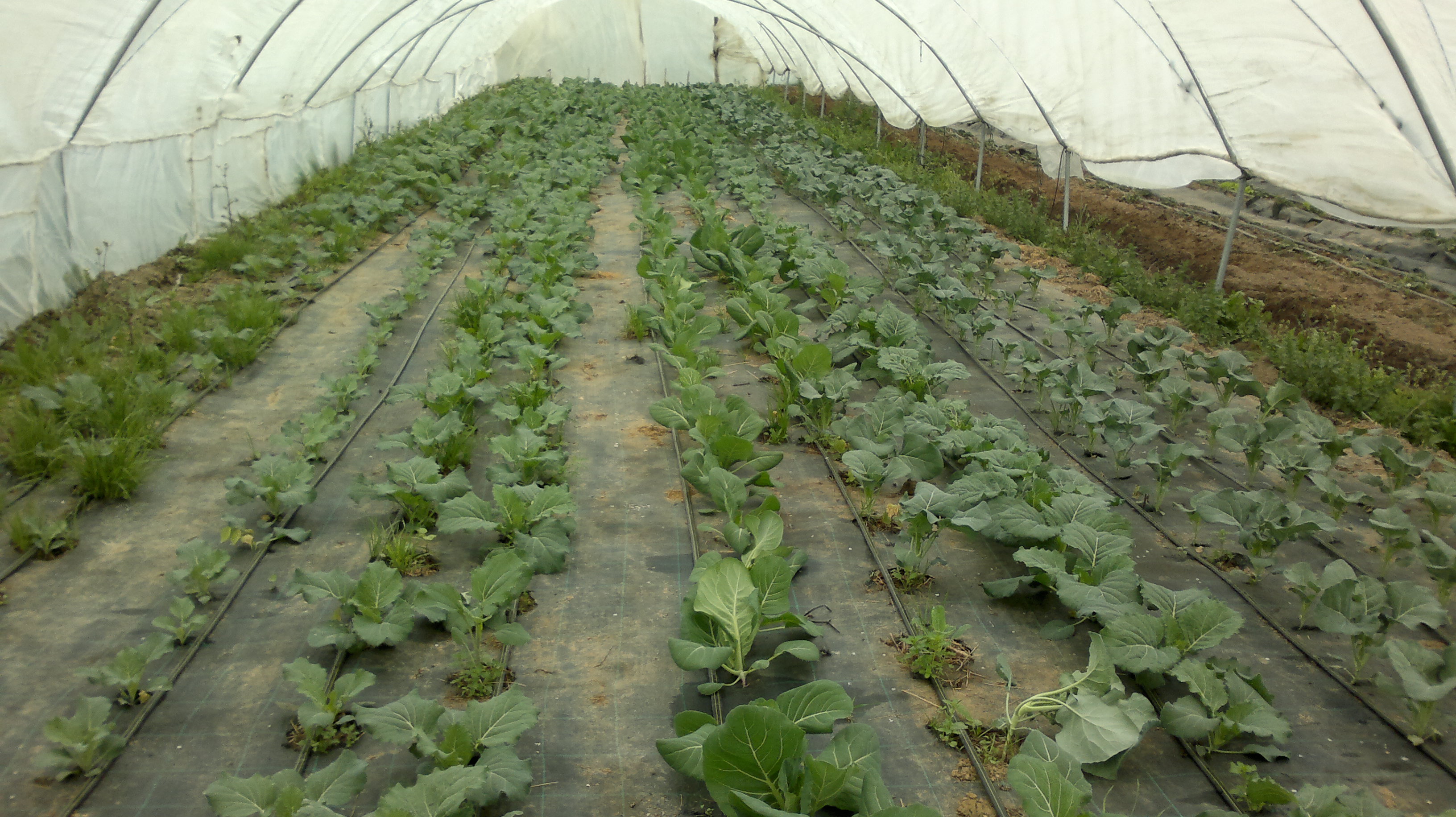The region of Alentejo, in Portugal, is characterized by a semi-arid Mediterranean climate. It is generally classified as an area of high vulnerability to climate change and high risk of desertification due to its aridity index and extension of low quality soils, combined with the climate scenarios that project for this region decrease in precipitation, increase in the frequency, duration and intensity of droughts and increase in temperatures. It is a region with a low density of population (some districts have less than 8 inhabitant/km2) and, despite being a region of agriculture and forestry, the majority of its area has no irrigation infrastructures; some areas have received investments to develop such infrastructures as in the case of the Alqueva dam. The land is typically used for rain fed agriculture of cereals and forage, grazing or agroforestry, with the cork oak and holm oak as primary trees. Herdade do Freixo do Meio is an organic certified farm located near the town of Montemor-o-novo, a municipality characterised by vast areas used for cork and holm oak montado, a multifunctional agro-silvo-pastoral system without irrigation.
Adapting to climate change in the region of Alentejo faces very different challenges depending on whether agriculture is supported by irrigation infrastructures or not. In majority of the areas where irrigation does not exist, the main challenge will be to deal with the decreased precipitation, increased droughts and increased temperatures. In the Alentejo region, according to RCP8.5 scenario annual precipitation is expected to decrease, of about 18%, from the present 631 mm to 519 mm in year 2100. In some municipalities such as Mértola, the precipitation is expected to decrease from present 482 mm to 288 mm in 2100. With this reduction of rainfall, pastures, cereals and forage are expected to become less productive and become less economically viable. Already in the present whenever a drought with 6-12 months of duration occurs, the cereal or forage crops are affected with sometimes 100% loss. Additionally, trees mortality is expected to rise due to increase fires and diseases occurrence, reducing their productivity as up to 50-100% for some species (e.g. eucalyptus and cork oak).
Adaptation measures such as protecting the territory and the forests against fire may have high costs. As productivity decreases and competition with European and global agro markets increases, the margin of profit of farmers decreases, often reaching loss net values already in the present. Financing of adaptation measures at the farm level is therefore a major obstacle. In the region many farms of 200-600 hectares of montado employ only two people; small farms are almost impossible to manage without loss, which has contributed to land abandonment. The main products of these farms are normally cork and sheep or cattle. The grain and forage produced without irrigation is no longer economically viable except integrated with animal production. Crop diversification, is also a big challenge, first due to water scarcity and secondly due to the low density of population and difficulty of commercialization. Cork trees are typically the main added value product of this type of farm but this has a fluctuant price. Moreover, cork oaks are now subject to more and more diseases (e.g. the fungus p. cinammomi) and in climate change scenarios are projected to decrease their productivity by 50%.



